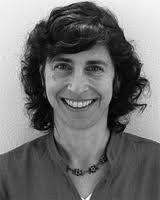 Rabbi Tanhum’s family was known for a specific praiseworthy habit. When his mother went to the market to buy food, she would buy two pounds of meat – one for her family and one for the poor.
Rabbi Tanhum’s family was known for a specific praiseworthy habit. When his mother went to the market to buy food, she would buy two pounds of meat – one for her family and one for the poor.
Rabbi Tanhum himself was known for the same predictable behavior: “If he was accustomed to buy a pound of meat, he would buy two pounds, one for himself and one for the poor; or two bundles of vegetables, one for himself and the other for the poor.”
These ancient midrashim/stories recount more than one family’s shopping pattern. They also show that the family’s behavior was public and witnessed by the community at large. But Rabbi Tanhum and his mother weren’t teaching their community – or ours – about how to shop for food. They are teaching us, through their examples, about the power of habit.
The texts emphasize the everyday, routine nature of this third century family’s generosity. They didn’t make one large gift at the end of the year, spending the same amount of money, or even more, with one large donation. This family’s habit wasn’t in response to the needs of specific individuals or particular events.
Their practice was simple: Every time they went food shopping, they purchased extra for the poor. Every time.
We are in the Hebrew month of Elul, a time of serious self-reflection. This is a time to contemplate how we might change our habits to create new and positive ways of being in the world. Our goal is to do t’shuvah, to return to our true, generous, compassionate and caring selves.
People often feel overwhelmed with this task. Change is hard. But it isn’t impossible. Judaism doesn’t ask of us to do the impossible. Judaism asks us to build the muscles of compassion and generosity just as we build muscle in the gym — through sustained action.
Rabbi Tanhum’s family’s exact practice may not feel practical or realistic for some of us. For others, this could become a meaningful family tradition. Either way, there are many ways to think about adding a caring habit to our lives, for the sake of our children. For the sake of our communities.
As we approach the New Year, we acknowledge that we are identified and remembered by our habits. What are the habits of compassion and caring that you practice in your life? What habits of others have inspired you? How will our children and our community see and remember us?
Let’s learn from each other. We invite you to share your thoughts by commenting on this post.
 By Beth Huppin
By Beth Huppin
Beth is the Director of JFS Project Kavod/Dignity. She has enjoyed teaching Judaics to children and adults of all ages in both formal and informal settings for over 30 years. She is the recipient of a 2010 National Covenant Award for Excellence in Jewish Education.
Feature Photo by Sean Mason / CC BY 2.0



